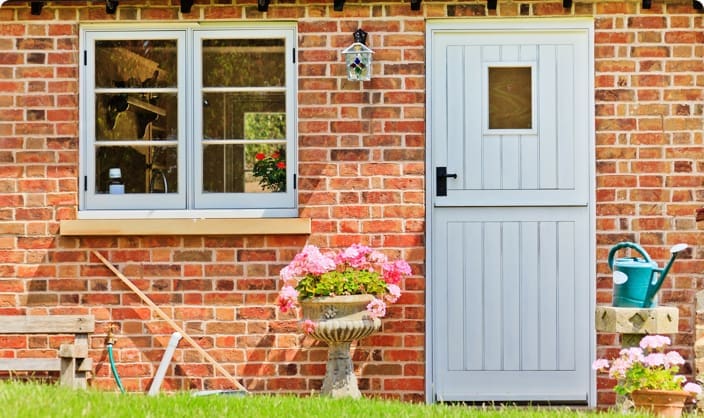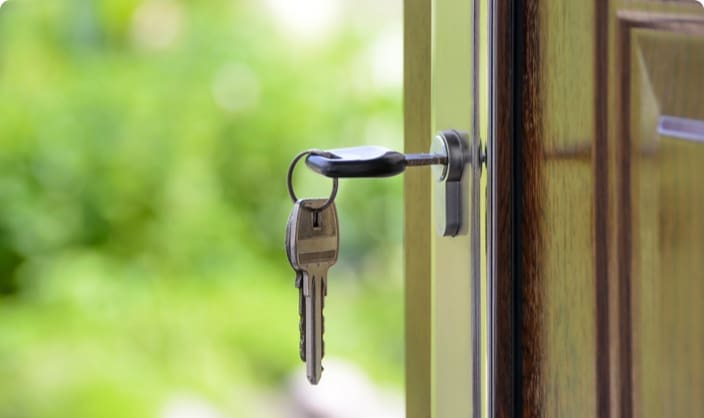House of Multiple Occupation (HMO) Mortgage
Letting out a multi-room property to several unrelated people can throw up all sorts of complications, both with local authorities and mortgage lenders. You’ll also need to be aware of all the HMO (house of multiple occupancy) legislation.
Therefore, it can be hugely beneficial to work with a specialist Buy-to-Let HMO mortgage broker. They will have in-depth knowledge of the market and will know what to look out for.
Do you qualify?
Get in touch for a free initial, no-obligation discussion about your mortgage situation.
No Credit Checks & only takes minutes!
Fill out our quick and easy Buy to Let mortgage calculator below. We only require a few details to see how much you may be able to borrow.
NO CREDIT CHECKS!
- What are HMO mortgages?
- Read our Buy to Let guide
- Try our Buy to Let mortgage calculator
- What are the lending criteria for a HMO mortgage?
- Do I need a licence for a HMO?
- How many people can occupy a HMO?
- Can I get a Limited Company HMO mortgage?
- Can I get a secured loan on a HMO Property?
- How to get the best HMO mortgage rates
- Choosing the best HMO mortgage lender
- HMO mortgage broker

What are HMO mortgages?
A HMO mortgage requires an individual to take out a mortgage on a house of multiple occupancy (HMO). This property will then be let out to multiple individuals who aren’t related.
So, what classes a property as a HMO? They are commonly defined as a property in which a washing area, cooking area, or toilet is shared by three or more people. These people must be from two or more different households.
Typically, each household in a property will have a separate contract with the landlord. However, there are instances where a group of students might share a collective agreement with the landlord. Each occupant would individually sign, and the law would still view them as being four separate households.
HMOs can include shared houses, hostels, and shared worker accommodation. They are sometimes alternatively known as multi-lets or multi-unit properties.

Your Buy to Let Situation
Why you would like a Buy to Let mortgage is unique to you. We approach mortgages for your individual needs.

What types of Buy to Let mortgages are there?
There are a variety of things to consider when looking into a Buy to Let mortgage.

Contact us
The best way to find out if you qualify for a buy to let mortgage is to speak to a mortgage advisor.
What are the lending criteria for a HMO mortgage?
Individual lenders will always have their own varying criteria for handling HMO mortgage applications. The general principles will remain consistent with conventional Buy-to-Let mortgages. However, there are a few distinct differences in the criteria that specialist lenders will apply to HMO mortgages. Some examples are listed here:
- Experience – Mortgage lenders handling HMO applications will usually shy away from lending to first-time Buy-to-Let purchasers. You will usually need to show at least 12 months’ experience of owning and running a Buy-to-Let property.
- Occupancy – Most lenders will impose a maximum limit of eight people within the multi-occupancy property. Although there are some lenders than will accept more.
- Client types – Lenders will extend mortgages to people or portfolio landlords under their personal name, or a limited company.
- Loan sizes – As the rental income is generally greater than that for a single-let dwelling, this will mean access to a larger loan.
- Loan-to-value – Most lenders will only lend a maximum of 75% of the value of the property. However, some may go higher. This might also be affected by the loan size.
- Property value – The usual minimum HMO property value is £100,000, although this will rise in London. However, you may find some lenders who will not impose a minimum value.
The Housing Acts obligate landlords of HMOs that are larger – with multiple tenants presenting a higher potential risk – to obtain a licence from the local authority. It’s mandatory for properties of three stories or more, where five or more occupants make up two or more households. You must be a ‘fit and proper person’ to obtain a licence. Authorities will also take your previous history as a landlord into consideration when reviewing your application.
On top of the mandatory requirements the Government set out, local authorities also impose their own requirements. For example, if HMOs in a geographical area have been shown to present a higher risk of fire.
It’s important to check with your local authority about whether you need a licence. Fines for operating a HMO without a licence are £20,000 in England and Wales, and £50,000 in Scotland.
Some lenders will impose a limit according to their own criteria. In general, lenders will accept the maximum number of habitable rooms as five, although some will be prepared to accept more. Very few will have products with no upper limit at all, although these are not easily available.
Can I get a limited company HMO mortgage?
Limited company Buy-to-Lets and houses of multiple occupancy (HMOs) have become increasingly popular within the mortgage market. This is fuelled by changes in tax allowances and new laws introduced for landlords in recent years.
You can indeed get a HMO mortgage for a limited company. This kind of mortgage is more difficult to find than a standard Buy-to-Let mortgage. Although, there is an increasing number of lenders now extending loans for HMOs so it stands to reason that they should be willing to combine the two.
Our team at The Mortgage Centres handle mortgage applications for all kinds of mortgage products. We will be able to show you the right lenders for your HMO limited company mortgage.
Can I get a Secured Loan on an HMO Property?
For whatever reason, you may at some point in the future need to raise additional funds secured against a HMO that you own. This could be for:
- House improvements
- Debt consolidation
- To help with a deposit on another property
- or many other reasons
Your first action might be to consult with your current mortgage provider about increasing borrowing or taking out a remortgage. However, in some cases this is not possible or desirable so a secured loan could be your best alternative option.
You will find that secured loans are available on HMOs in the same way as they are for conventional Buy-to-Let properties. Landlords often prefer secured loans, as they can often obtain a greater level of borrowing.
It is important to pay close attention to the costs. Rates and fees for secured loans are usually higher than for a standard mortgage. Ensure you research the terms thoroughly and understand the risks associated.
How to get the best HMO mortgage rates
Lenders base much of their decision on how much you will be able to borrow. You are likely to get a greater mortgage loan offer on a HMO than you are on a normal Buy-to-Let. However, lenders also see these properties as greater risk, so they’ll typically offer higher interest rates.
There is one way to combat this and that’s by providing a larger deposit. This way you are more likely to get a better interest rate. By reducing the lenders exposure, you are reducing their perceived level of risk.
The rates can also be influenced by the level of fees associated with the mortgage deal. However, this is not always the case with all lenders or HMO mortgages. If you pay a higher fee for the product, then a lower interest rate is usually available.
Be aware that a lower interest rate product might not be the best deal in your circumstances. So, it’s up to you to consider all costs and make sure that it will benefit in the long run.
Charges can also vary according to the type of product or scheme – either fixed-rate or tracker. Generally, fixed rate mortgages are priced higher than a tracker or discount variable rate mortgage. Also, the longer the term of the fixed rate, the higher the interest rate is likely to be.
HMO mortgages are a niche product within the market. So, it’s no surprise you won’t be able to pop into your high street lender and obtain a multi-let scheme.
Instead, there are a number of specialist lenders who cater to the requirements of landlords. Each have their own criteria for what properties fall into the HMO bracket and whether they will lend to them. It’s not unheard of for lenders to decline an application based on the number of storeys or rooms in a property.
Specialist mortgage lenders will also have varying lending limits, deposit requirements, and view on your track record as a landlord. It can be quite a labyrinthine task to find a lender with competitive rates and suitable terms for your circumstances. At The Mortgage Centres, we have a specialist team of brokers who are highly knowledgeable within this sector. They will be able to guide you through every step of the process to get the right product for you.
HMO mortgage broker
Converting a property into an HMO can boost rental income, making it a rapidly growing area in the market. However, they do come with extra challenges and a raft of laws and regulations to which you must adhere.
Using a specialist broker can prove invaluable for investors in HMOs, whatever your level of experience. They will be able to make sure you get the most suitable mortgage to meet your needs and goals.
Our team at The Mortgage Centres have years of experience handling mortgage applications for HMOs and Buy-to-Lets. We are in a favourable position to source the best HMO mortgage for your requirements. We have access to niche lenders who provide exclusive deals not found online or on the high street. Get in touch today for a free consultation.
We'll call you…
"*" indicates required fields


